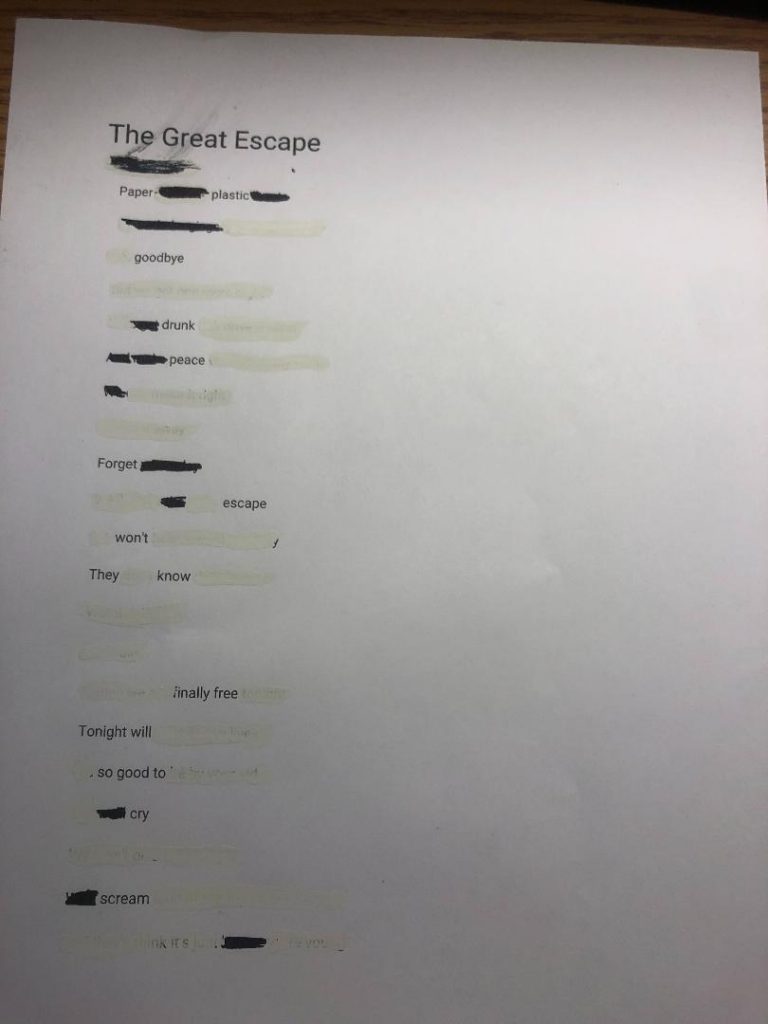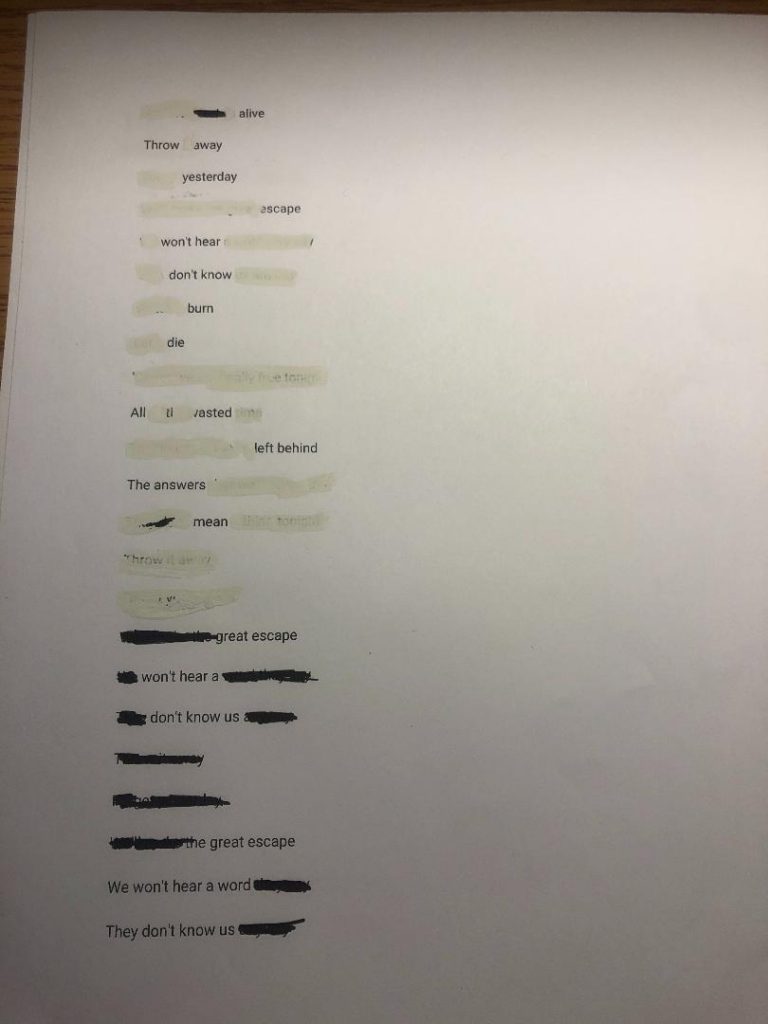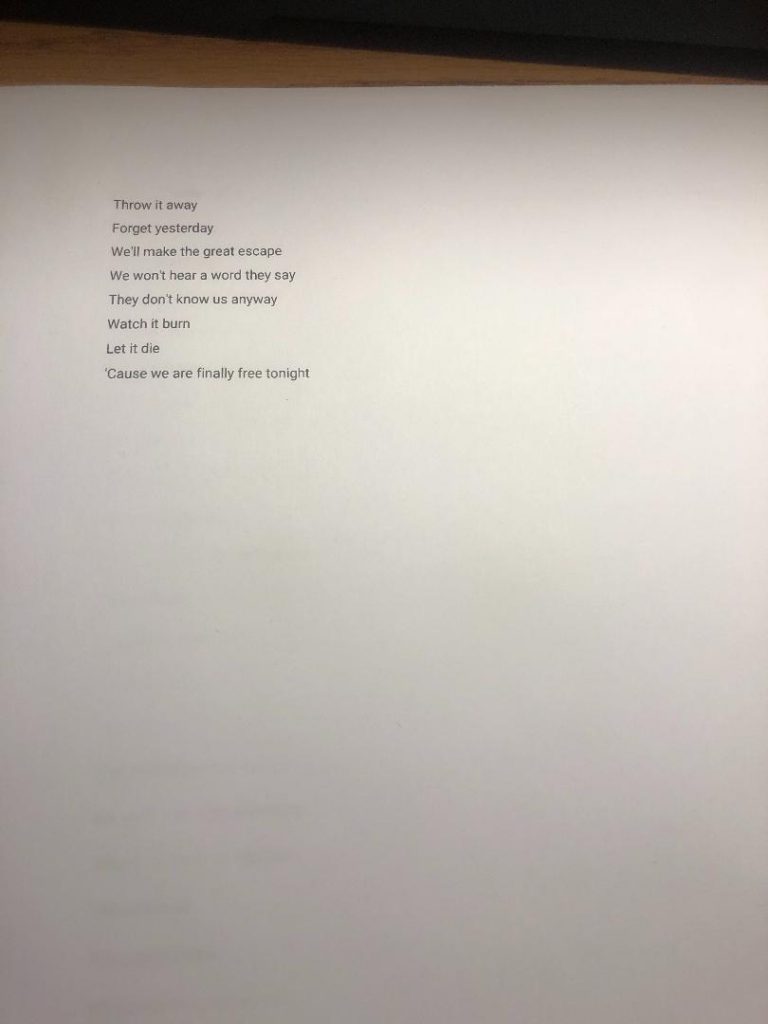Within the first few pages of the book, the narrator asks “What is Chinese tradition and what is the movies?” (6). Tradition seems to be a very important matter for everyone living in the village and breaking these traditions will have serious repercussions. This can be seen in the very first paragraph with the narrator’s mother sharing a story of the “no name woman” stating “as if she had never been born” (3). After the village finds out about her pregnancy even though her husband left, they raid her house on the night the baby was to be born and is later found dead in the family well along with the baby. The aunt’s real punishment for breaking tradition wasn’t just her house being destroyed by the villagers, but her own family completely and intentionally forgetting about her. Although, the narrator’s mother wasn’t supposed to tell the story of the “no named woman”, she does this to pass down a story from someone who was once apart of the family, even if it is breaking tradition. After learning about this story of her aunt, the narrator goes on to say, “Unless I see her life branching into mine, she gives me no ancestral help.” (8). The narrator starts to recognize the story of her aunt and how she isn’t too different from herself, by defending the no name woman’s identity because it was taken away from her.
Kingston also emphasizes the importance of identity and having a voice. After being stripped of her identity and her own family shaming her, the “no name woman” no longer had a voice to share. The narrator states, “My aunt must have lived in the same house as my parents and eaten at an outcast table.” (7). The family completely disregards the aunt eating with her own family and makes her sit at another table so she doesn’t feel included. Her identity had been completely destroyed at this point and it was also a tradition for the daughter-in-law to be living with the husband’s parents, not their own. This proves that the family deliberately kept the aunt within their own household and wasn’t allowed to live with her husband’s parents since she broke tradition and doesn’t have a say on what happens with her own life.
Tradition can be seen throughout the entirety of the first chapter and another heavily focused idea within the village is the role of gender. It was seen as tradition for women in Chinese culture to do as they were told. Kingston states, “Women in the old China did not choose.” (6), as we can see here that women didn’t have a voice since this can be tied back to tradition within their culture. Kingston also states about the male’s role in society, “They both gave orders: she followed. “If you tell your family. I’ll beat you. I’ll kill you. Be here again next week””. (7) The role of gender in this society is completely unjust for the female’s side, as they were often told what to do and have things chosen for them. Although, the “no name woman” had her house ransacked by the village for having a baby with a man other than her husband, she was the only one who faced repercussions for this and the other man faced no consequences. Tradition in this culture is bias and unjust towards females.
Discussion Questions
Question 1: Did the Aunt kill herself because she didn’t follow tradition?
Question 2: Do you believe that the tradition in this society will stay the same or change? Why or why not?
Work Cited:
Kingston, Maxine Hong. The Woman Warrior. Vintage International, 1976.




